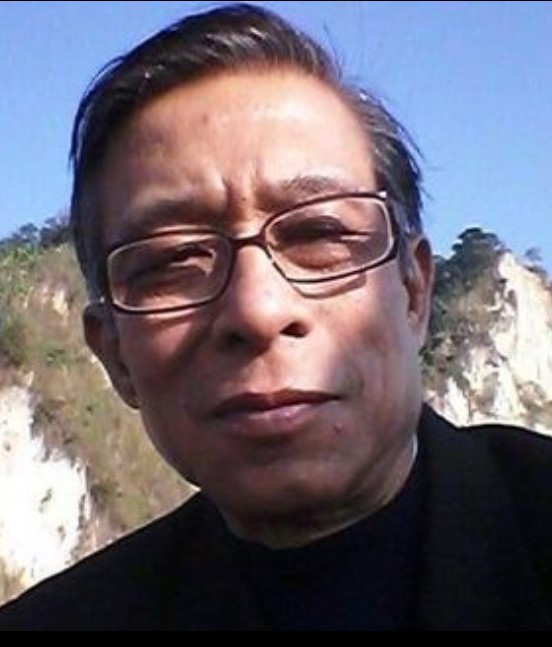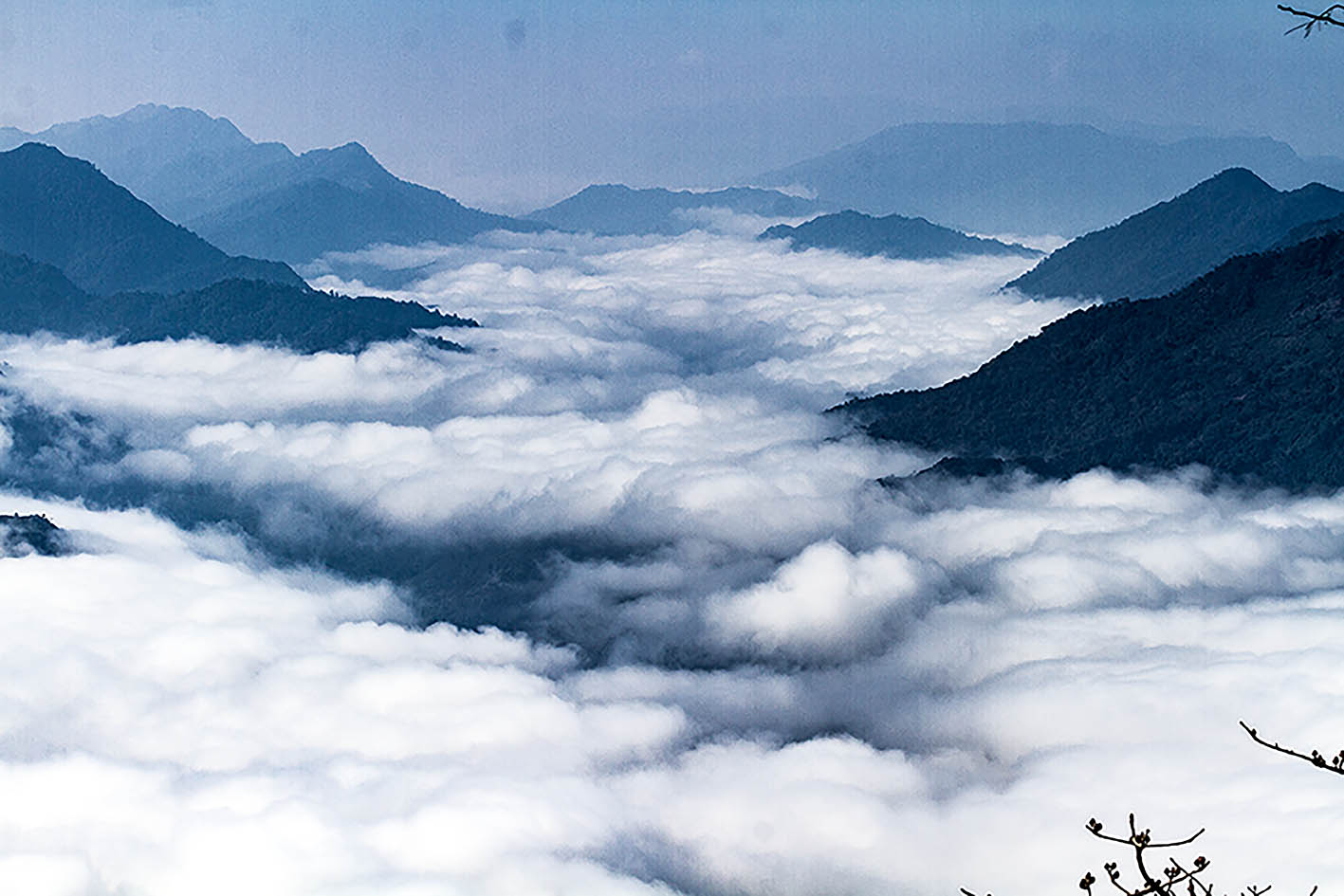Generations Come and Generations Go, But the Earth Remains Forever – Old Testament, Ecclesiastes, 1, 4
No relationship is more primal than the one humans have with land on planet Earth. A fine example are the sacred places of worship of what we sometimes call abode of “Sylvan Deities” for lack of a better translation, the Umang Lai forested enclosures that Manipur hold dear are of course parts of “LANDS” that are passed on from one generation to another. It is not only when and as we worship “Umang Lai (s)” as the very essence of the age-old belief system embedded in civilizational moorings that we pay obeisance to the magnificence and the abundance of wealth we receive from Planet Earth but also that defines the never-ending life source. Sights of forested sites immediately evoke a sense of calm and wellbeing, hence the reverence they elicit from all, often soothing disturbed souls. Hence, the collective beliefs of a presiding Deity at all the land humans dwell on become more resolute. This also makes it easier to fully appreciate the value of nature and its benevolence. Such practices remind us of the life-giving powers of the very piece of land that we step on and the nourishments that it provides through generations.
In our times when homelands and languages unfailingly define identity in addition to what is considered ethnicity, it is all the more important to attempt to understand the relationship of land and man.
Nobody can carry the smallest piece of land when death comes however mighty the individual landowner is; and so “lands” big or small certainly do pass on to the next generation and care for the well-being of the ‘lands’ of course become the responsibility more for the newer generation. However brief and inadequate is the understanding of a generation of its attachment to the “Land” is, “not an inch….” can be surrendered sound all too familiar. Conflicts occur when land interests are challenged among nations or among entities like a province within a nation, or groups of people including individual homesteads. Such circumstances prompt many to deploy forces to believably protect or recover perceived lost territories whether through bulldozers on land, dredgers in shallow waters and warships in the seas or missiles in the air and other more complex means and sometimes through firearms whether on land, seas or air. Then there is of course the threat of intercontinental ballistic missiles with nuclear warheads in a modern day full-scale war scenario.
As an individual, a community or a nation, we endeavor to safeguard and improve to make it a little better than others’ homelands. Therefore, is not unfenced borders of a country for instance like a closed yet unlocked box? You can effortlessly open an unlocked box even if you are not expected to because doing that only means you are breaching your neighbours’ private space because approval is never implicit. Portions of Lands planet earth provides are immediately sacred so long such pieces of land are your country, province, village or your very own homestead. Yet, you do not hesitate, are sometimes even enthusiastic to plunder, devastate the moment such land are considered as lands of the adversaries.
Development for improving human lives as seen through improved infrastructure of modern day roads, bridges, seaports, airports, buildings and other large structures of concrete and masonry have always been closely linked to what the “Land” provides – on ground or below the ground of forest resources, agricultural activities, oil and coal extracts, minerals and metals. The capacity of a country to exploit and utilize these resources as much as it can and its association with resources such as oil in present times certainly determines its economic strengths and influence over other nation states.
Foraging for food and shelter has always to do with land, the forests or water bodies. Humans and land are inseparable. Yet why should men covet land of others to possess and access its resources and until the possession is complete you do everything to damage that very land. Otherwise, why should there be bombardments, bombs to pound the enemy’s land during wars. Wars, whether in the past or in contemporary times of course mean martyrdom of brave lives as soldiers of aggressor or defender nation states.
In order to safeguard strengths and influence countries indulge in a large number of activities that are impossible and unrealistic to view through a moral prism. Espionage of perceived competitor countries is a national duty to achieve a nation’s goal of protecting its interests and scuttle any aggression that could be construed to weaken its position. Conflicts because of such competitive positions among nations are only understandable consequences but that can never be morally justified for the modern world to propel to progress that sometimes even aspire to reach and explore the space and perhaps colonize other planets.
All this is for many of the world population who have had settled agriculture, who aspire to create large concrete structures, large infrastructure projects for further “development and progress” in what are considered modern nation states with powerful standing army, that carry out diplomatic relations with other countries for congenial co-existence and modern economies with international trade and financial linkages. Contrast this with those who have been nomads who have been moving so very often largely to fulfill the basic needs. Nomads who continue to shift homesteads for food and shelter in many parts of the world, particularly those who are of numerically small communities, whose languages are not known to others and they themselves do not speak other languages, live with complete understanding of their natural habitat. Their purpose in life then becomes to learn and understand the ways of their natural habitats from time to time of the climate and the many whims of the natural world.
Think of for instance the Moken in the eight hundred or so islands claimed by both Myanmar and Thailand who number less than three thousand living semi-nomadic hunter-gather lifestyle based on the sea. The Moken language is identified as Austronesian. They continued to live as they have been despite efforts to assimilate them into the wider regional culture by both Myanmar and Thailand. What troubles them are their decreasing population, difficulties in continuing their nomadic lifestyle, their unsettled legal status leading to marginalization because of modern property and immigration laws and tightening border policies of the countries.
December 2004 was a watershed period in the lives of Moken and all those who were affected by that monster tsunami of 26 December 2004 in the region. The Moken islands received a lot of attention in 2005 during the recovery in the aftermath of the earthquake and tsunami then. As they are so adapted to the ways of the ocean, the Moken in some areas are believed to have known the tsunami was coming many lives were saved. Many survived to continue with the only way of life they knew. However, elsewhere in the coastal villages other Moken in the region suffered severe devastation to houses and fishing boats like other communities. Even though they are friendlier to nature and exploit little on their natural surroundings to survive, when it comes to ownership of land because land laws exist around them they suffer and everything is different from their way of life.
The Moken could protect themselves to an extent the vagaries of extreme climatic natural conditions and are more adapt to the ways of nature. However, they are at a loss when they need to access say modern healthcare or other government facilities they could avail only because they do not possess birth certificates or show any evidence of ownership of land except to say that they were born there or have lived there for long and their ancestors were buried there. In other words, their belongingness to a particular geographical location that their immediate neighbours understand cannot be proved and hence they are stateless to all who could be of assistance when need arises.
Most societies fall between the wide spectrum of citizenry in modern nation states and like those of the lives of the Moken with many in varying degrees of development and progression from food gathering hunting to established economic lives for food, shelter and comfortable lives. All however aspire to better their lives. What then would ensure that for individuals within a community and among communities? To enact Laws through deliberations to ensure differing viewpoints are reconciled, that are binding to the members of the community and attempts to attain achievable aspirations must be the goal for all to lead purposeful less conflicted lives.
It is therefore necessary to understand what makes it to be friendlier to the immediate physical environment and what knowledge of the ways of nature in our surroundings give us in return and to lead less tensed and amicable lives among individuals and communities. Whether it is for the economic exploitation of the lands for agriculture, mining or other purposes or the revered forested enclosures of Umang Lai (s) to coexist without conflict, it is important to resort to laws, if already enacted or to enact them afresh to avoid and defuse conflicts if there are. Only laws can create conditions in the society to follow and observe rules by all to establish and maintain order and defuse conflicts.
Lived experiences of communities like the Moken only illustrate that cringing to their way of life with traditional held beliefs and practices have not yet evolved into positive laws to enable them to navigate competently in the times they live in. The anachronism they face can only be addressed if some form of land laws were to evolve in fit into the larger landscape where citizenship of Thailand or Myanmar for the Moken was there because to be stateless today has definite disadvantages that can sometimes be miserable.
However, when there is no respect for Nature including the very pieces of earth we build our homes and hearths exploitation and abuse of this finite natural resource is hastened. Across geographies and societies, land in present times has become the most tangible asset more than ever in human history. This common interest runs among all believers and atheists or rationalists and the agnostics alike. Even if one generation or the life span of an individual is short, it is no wonder that Land simply turns out to be the root cause of all conflicts of the times. Lawlessness and conflicts arising out of claims to land ownerships are evidently consequences of absence of laws or laws, not enforced even when there are such laws. Absence of laws for a set of people, a community or communities only means “unadministered people” as opposed to what say Kautilya’s Arthashastra written about 300 B.C.E. enunciates as “administered people”. Land Tax, for instance, is for assurance of an administration that also covers many aspects of citizen’s life that is fair and equitable for all and for common good. Accordingly, when stakes are high in the health and well-being of the lands individuals and communities associate with, care, respect and love for them follow as natural corollary.

The writer is a former Regional Head of a Central PSU in the insurance sector. Views expressed are personal.











